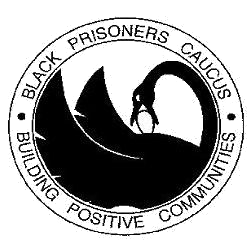Seattle Teacher Residency – Guest Post: Reflections from the Black Prisoner’s Caucus, Monroe Correctional Facility
Orignally posted at http://www.seattleteacherresidency.org/guest-post-reflections-from-the-black-prisoners-caucus-monroe-correctional-facility/
“Have you ever been in a prison before?” Miss Janet, a woman that the prison officials call a “sponsor,” asked me. This seasoned visitor must have seen some apprehension in my face or body language. “No,” I answered. I was a bit anxious. Walking into Monroe Correctional Facility can be intimidating. “You’re safe,” she reassured me. Shortly after that, we were escorted into a large room where several chairs were arranged in a circle. It was there, after 13 years in this field, that I had one of the greatest learning opportunities I had ever encountered. I, along with several residents of cohort 3, and other friends and members of STR, had the opportunity to talk to members of the Black Prisoner’s Caucus (BPC). The men in the circle that evening shared stories about their educational experiences and, in turn, asked us questions: “Why did you become a teacher? What makes you an effective educator? How much do you know about each individual student?” and so on.
The men in the BPC spend time multiple times a year doing this. Their mission is: “To promote cultural growth and provide incarcerated men the tools and platform to confront social issues that perpetuate discrimination, inequity, and oppression among prisoners and poor communities of color.” Indeed, this social justice piece is what brought the BPC and STR together. Six years ago, STR director Marisa Bier worked with a design team to map out what the Seattle Teacher Residency would look like in practice. On that design team was Mark Perry, principal of Nova High School, an alternative high school in the Seattle School District. He believed strongly that having residents visit the BPC should be part of the STR curriculum and, after her first experience with the BPC, Marisa knew he was right (see her discussion about another visit here). Now, each resident in STR meets with members of the BPC, oftentimes more than once, to solidify the importance of the work they do and to learn from the wisdom of men who have reflected deeply on their past experiences.
The men in the circle that night had a range of moving experiences to share. One young man was relatively new and he talked to the group about the “glitz and glamour” associated with gang life. He discussed how challenging it is to overcome the allure of the street without a strong, safe, and caring environment at school. School was one place that could have served as a safety net for these men. Sadly, that often wasn’t the case. Devon, who sat just to my left and spoke passionately about social justice, vividly recalled an experience where he asked a question and was reprimanded cruelly by the teacher for not knowing the answer. She told him, “You’ll never graduate.” Years later, in that room, you could still feel the anger and hurt he felt from that interaction. Never before had it been made so apparent to me how impactful we are as teachers: What we say and what we do matters a great deal, especially for students in crisis.
The men spoke specifically about black boys, who are alarmingly overrepresented when it comes to suspension, expulsion and referrals to special education. The members of the BPC told the residents how important their work is, because their sons and nephews attend the schools where they are teaching. The residents listened with open ears and open hearts and asked insightful questions: What can we do differently when we are out there? What can we do better? What must we do better? The men were more than willing to share. The best teachers they had encountered had believed in them more than they believed in themselves. They best teachers “stayed on” the men, no matter how much they acted out or tried to push the teachers away. These teachers retained high expectations for them and held them to it. They were passionate, unwilling to fail, motivators, uplifting, authentic, and patient. These are the words and phrases they used to describe those teachers that made a difference.
Some of the valuable lessons we learned included:
- Love the students like they are your own kids. If you are going to say something or do something, ask yourself first: Would I say this or do this to my own child?
- Know your student. This came up repeatedly. Understand their community and their world. Build a relationship with them.
- “A misbehaving child is a discouraged child.” If you are seeing challenging behaviors, talk to the student. He may be experiencing some trauma that needs to be addressed.
- Make sure your instruction is relevant to the students and engaging. Incorporate themes and topics that matter to them and that they can connect with
- Allow yourself to make mistakes. Talk about them and learn from them.
The hours we were in the circle flew by. The honesty and generosity these men demonstrated by speaking so openly was awe-inspiring. We thanked them profusely for this opportunity. They thanked the residents as well, for being in the classroom, for choosing this work, and, most importantly, for being there to listen and learn. This learning needs to continue, for all of us, because the inequity that exists in our educational system is a complex and critical dilemma. It can only be tackled if people are informed and educated. Because, as Anthony, the group’s moderator, succinctly stated, “You don’t need to be racist. Just ignorant of the facts.”
Maggie Schulze is an instructor for the special education track Residents in Cohort Three of the Seattle Teacher Residency. She also coaches special education candidates. She visited the BPC with STR in April.
